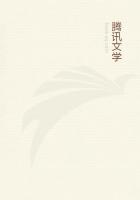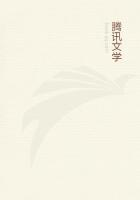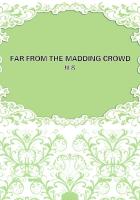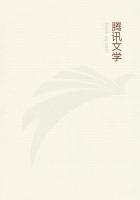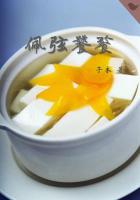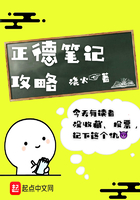IT had chanced (as the CASCO beat through the Bordelais Straits for Taahauku)she approached on one board very near the land in the opposite isle of Tauata,where houses were to be seen in a grove of tall coco-palms.Brother Michel pointed out the spot.'I am at home now,'said he.'I believe I have a large share in these cocoa-nuts;and in that house madame my mother lives with her two husbands!''With two husbands?'somebody inquired.'C'EST MAHONTE,'replied the brother drily.
A word in passing on the two husbands.I conceive the brother to have expressed himself loosely.It seems common enough to find a native lady with two consorts;but these are not two husbands.The first is still the husband;the wife continues to be referred to by his name;and the position of the coadjutor,or PIKIO,although quite regular,appears undoubtedly subordinate.We had opportunities to observe one household of the sort.The PIKIO was recognised;appeared openly along with the husband when the lady was thought to be insulted,and the pair made common cause like brothers.At home the inequality was more apparent.The husband sat to receive and entertain visitors;the PIKIO was running the while to fetch cocoa-nuts like a hired servant,and I remarked he was sent on these errands in preference even to the son.Plainly we have here no second husband;plainly we have the tolerated lover.Only,in the Marquesas,instead of carrying his lady's fan and mantle,he must turn his hand to do the husband's housework.
The sight of Brother Michel's family estate led the conversation for some while upon the method and consequence of artificial kinship.Our curiosity became extremely whetted;the brother offered to have the whole of us adopted,and some two days later we became accordingly the children of Paaaeua,appointed chief of Atuona.I was unable to be present at the ceremony,which was primitively ******.The two Mrs.Stevensons and Mr.Osbourne,along with Paaaeua,his wife,and an adopted child of theirs,son of a shipwrecked Austrian,sat down to an excellent island meal,of which the principal and the only necessary dish was pig.Aconcourse watched them through the apertures of the house;but none,not even Brother Michel,might partake;for the meal was sacramental,and either creative or declaratory of the new relationship.In Tahiti things are not so strictly ordered;when Ori and I 'made brothers,'both our families sat with us at table,yet only he and I,who had eaten with intention were supposed to be affected by the ceremony.For the adoption of an infant I believe no formality to be required;the child is handed over by the natural parents,and grows up to inherit the estates of the adoptive.Presents are doubtless exchanged,as at all junctures of island life,social or international;but I never heard of any banquet -the child's presence at the daily board perhaps sufficing.We may find the rationale in the ancient Arabian idea that a common diet makes a common blood,with its derivative axiom that 'he is the father who gives the child its morning draught.'
In the Marquesan practice,the sense would thus be evanescent;from the Tahitian,a mere survival,it will have entirely fled.An interesting parallel will probably occur to many of my readers.
What is the nature of the obligation assumed at such a festival?
It will vary with the characters of those engaged,and with the circumstances of the case.Thus it would be absurd to take too seriously our adoption at Atuona.On the part of Paaaeua it was an affair of social ambition;when he agreed to receive us in his family the man had not so much as seen us,and knew only that we were inestimably rich and travelled in a floating palace.We,upon our side,ate of his baked meats with no true ANIMUS AFFILIANDI,but moved by the single sentiment of curiosity.The affair was formal,and a matter of parade,as when in Europe sovereigns call each other cousin.Yet,had we stayed at Atuona,Paaaeua would have held himself bound to establish us upon his land,and to set apart young men for our service,and trees for our support.I have mentioned the Austrian.He sailed in one of two sister ships,which left the Clyde in coal;both rounded the Horn,and both,at several hundred miles of distance,though close on the same point of time,took fire at sea on the Pacific.One was destroyed;the derelict iron frame of the second,after long,aimless cruising,was at length recovered,refitted,and hails to-day from San Francisco.A boat's crew from one of these disasters reached,after great hardships,the isle of Hiva-oa.Some of these men vowed they would never again confront the chances of the sea;but alone of them all the Austrian has been exactly true to his engagement,remains where he landed,and designs to die where he has lived.Now,with such a man,falling and taking root among islanders,the processes described may be compared to a gardener's graft.He passes bodily into the native stock;ceases wholly to be alien;has entered the commune of the blood,shares the prosperity and consideration of his new family,and is expected to impart with the same generosity the fruits of his European skill and knowledge.
It is this implied engagement that so frequently offends the ingrafted white.To snatch an immediate advantage -to get (let us say)a station for his store -he will play upon the native custom and become a son or a brother for the day,promising himself to cast down the ladder by which he shall have ascended,and repudiate the kinship so soon as it shall grow burdensome.And he finds there are two parties to the bargain.Perhaps his Polynesian relative is ******,and conceived the blood-bond literally;perhaps he is shrewd,and himself entered the covenant with a view to gain.
And either way the store is ravaged,the house littered with lazy natives;and the richer the man grows,the more numerous,the more idle,and the more affectionate he finds his native relatives.

